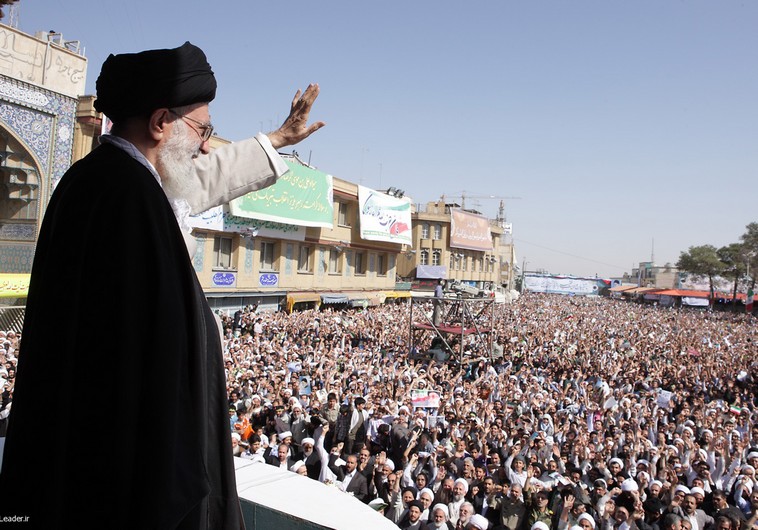Khamenei’s test: Will he be able to overcome the opposition of Iran’s extremists?
By YOSSI MELMAN/02/15/2015
The recently reported exchange of letters between US President Barack Obama and Iran’s Supreme Leader Ayatollah Ali Khamenei will increase Prime Minister Benjamin Netanyahu’s feelings of paranoia. But news of the letter exchange will also strengthen the feeling of the Republicans in the US Congress that the Obama administration is interested, to say the least, in reaching a diplomatic agreement with Iran.
On the agenda is not only the closing of the Iranian nuclear file in a deal that will include the easing of economic sanctions in exchange for the curtailment of the nuclear program. A much broader deal is being contemplated which will include understandings for cooperation in the war against Islamic State (ISIS). If such a broad deal is reached, the US-Iranian relationship will have undergone a revolution.
Thirty-five years have passed since the Iranian Revolution which gave the reins of power in Tehran to religious leaders whose epithet for the US is the “Great Satan.” If Khamenei and Obama reach understandings, this would be an historical breakthrough; a reconciliation comparable to the warming of ties between Mao’s China initiated by US President Richard Nixon in the early 1970s.
But the path to such a deal is still long. The gaps are wide between the sides on the nuclear issue – the first matter to be resolved if there is to be reconciliation between the two countries. The report on the exchange of letters in The Wall Street Journal mentioned that Khamenei only responded to Obama’s letter after a few months, demonstrating that the supreme leader is in no rush. Khamenei is progressing, if at all, at a slow pace. It is difficult for him to erase 36 years of hate.
During the bloody Iran-Iraq War of the 1980s, Revolutionary Guards officers tried to convince then-leader and founder of the Iranian Republic, Ayatollah Ruhollah Khomeini, to agree to a cease-fire due to Iran’s difficult situation. Khomeini would not agree under any circumstances and the war that had claimed one million lives on both sides lasted eight years. But finally, Khomeini understood that Iran needed a break from the difficult burden of the war. He was quoted as saying that for him agreeing to a cease-fire with his arch-enemy Saddam Hussein was like “drinking a cup of poison.” In the end Khomeini drank from the cup.
The big question is if Ali Khamenei will also agree to drink from the “poison cup” and will overcome the opposition of the extremists at the head of the Revolutionary Guards and order President Hassan Rouhani, who heads the moderates in power, to reach a deal on Iran’s nuclear program. When such a deal is reached, it will also be easier to arrive at broader understandings.
Yossi Melman is an Israeli journalist and writer who specializes in security and intelligence affairs. He is co-author of “Spies Against Armageddon: inside Israel’s Secret Wars.
Visit Yossi Melman’s blog: www.israelspy.com
Translation by Nathan Wise




















